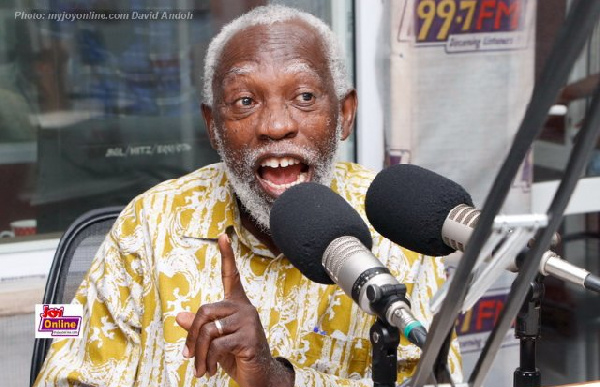Educationist Professor Stephen Adei has voiced concerns over the practical implementation of the government’s flagship Free SHS Programme, rather than its legislative backing.
The former GIMPA rector expressed confusion over government’s decision to seek legislation now after seven years of practice.
Speaking on PM Express on Tuesday, he noted, “What they’ve done for the past several years has not been illegal; it’s been by government policy and is acceptable.”
His comment follows Education Minister Dr Yaw Adutwum’s announcement that the Free SHS Bill, 2024, will be presented to Cabinet for debate this week.
The proposed bill aims to give legal backing to free and compulsory senior high school (SHS) education, along with several other changes to the education system, including the restructuring of junior high school (JHS) and the cancellation of the Basic Education Certificate Examination (BECE) as a prerequisite for SHS admission.
Dr Aduwtum added that another proposal of the bill was the cancellation of the Basic Education Certificate Examination (BECE) as a precondition for gaining admission to the secondary level. Rather, it would be used for school selection purposes.
When passed, the certification for completing SHS would become the first level of formal certificate any student could obtain in the country, rather than the BECE certification, the Education Minister further stated.
“What we need is a law that says there should be free, compulsory universal secondary education. This means the minimum education for the Ghanaian should be a senior high school and not junior high school,” he said, adding “It is our responsibility to provide the support for them”.
Despite these proposed changes, Professor Adei remains sceptical.
He argues that the policy is sound, but the focus should be on refining its implementation rather than legislating it.
“There must be a reason why they want to bring in a law now,” he said, questioning the necessity of the proposed legislation.
Professor Adei suggests that the Education Ministry should consult with experts, stakeholders, and ordinary Ghanaians to improve the policy.
“I’ve been in public service all my life until retirement, and this is a very weird way of doing policy,” he added, emphasising the need for practical solutions over legal formalities.
Latest Stories
-
Two-time Wimbledon champion Kvitova to retire
2 hours -
Sinner suffers worst loss by ranking since 2023
3 hours -
Maresca yet to speak to Mudryk after anti-doping charge
3 hours -
Leverkusen set to accelerate Quansah interest
3 hours -
Palmeiras beat Al Ahly after 40 minutes weather delay
3 hours -
Manchester City fined £1m for repeatedly delaying kick-off
3 hours -
Real Madrid forward Mbappe released from hospital
4 hours -
‘Touched by God’ – Messi shows he still has magic touch
4 hours -
Mahama directs local procurement of Free Sanitary Pads
4 hours -
‘Black Star Experience’ to start in July
4 hours -
Supreme Court ‘quashes’ High Court verdict against Abesimhene Barima Akyeaw III
4 hours -
China injects over $22.85bn into Africa, sets $134bn trade record
4 hours -
Unemployed remanded for allegedly swindling footballer of GH¢395,250
5 hours -
Dodgers say immigration agents denied entry to Los Angeles stadium
5 hours -
It’s propaganda, Ken Agyapong will win – Stephen Amoah fires Bawumia camp over MP endorsements
5 hours

